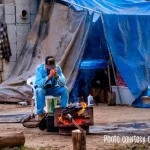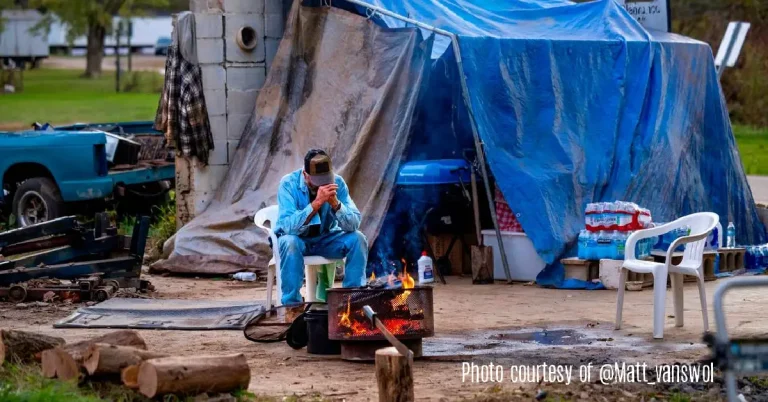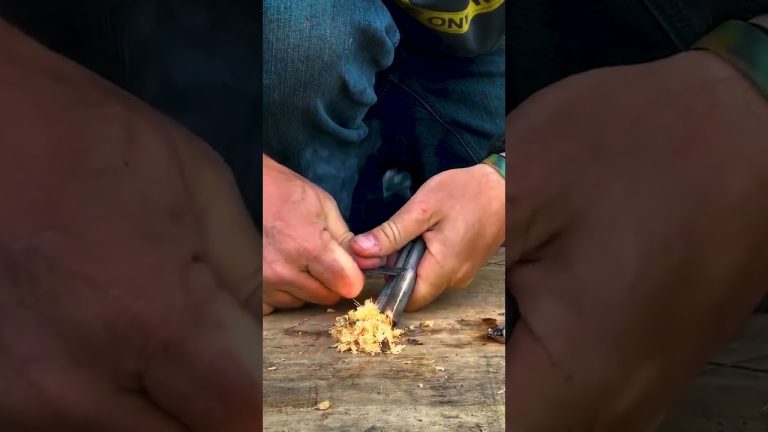Some of the links in this post may contain affiliate links for your convenience. As an Amazon associate I earn from qualifying purchases.
When our eldest was five, the hotel alarm went off because someone burned toast. I can still remember his determination to drag us out the instant it started. We barely got our shoes on before he was opening the door to rush out. I didn’t even manage to grab my wedding ring before racing after him, although I did get a room key card and the shoes I had near the door.
If the shoes and keycard hadn’t been easy to grab as I raced to the door, we could’ve been locked out. If there was an actual fire, it could just easily have been my husband or me that freaked and raced out if there was an actual fire. This experience, combined with traveling alone on business, made me consider how I should prepare for a hotel emergency.
Types of Hotel Emergencies You Might Experience
Hotels are just large buildings. Like any building, bad things can happen, including bad luck. Power outages, floods, fire, blizzards, tornadoes, civil unrest, and all manners of other problems can affect your stay, and you need a plan if that happens. Hotel room safety doesn’t happen by accident, no pun intended.
Hotel Safety Begins Before You Arrive
Although there isn’t a need to check in to a hotel with a fully loaded survival pack, over the years, I’ve found that having a few emergency type items can improve hotel safety.
Lighting
It’s a good idea to have a flashlight with you. Assuming the battery isn’t dead, a cell phone or tablet will almost certainly have a flashlight app that is good enough to help you navigate through the room, down the hall, and down the stairway safely.
However, I like to have one or two small LED flashlights tucked in my purse, a backpack, or even my toiletries bag. They just give off a wider and brighter beam. And if you have kids who would become very fearful in a hotel power outage or nighttime evacuation, these flashlights would be priceless. It helps that they’re inexpensive and easy to always have with you.
Meals and Snacks
It’s also a good idea to bring a few easy-to-make snacks or meals. My family was once stuck in a hotel at the center of a fairly large power outage, right at dinner time. No restaurants or grocery stores were open because of the power outage (credit card scanners and registers weren’t working) and we needed to eat. Luckily, I had cereal, oatmeal, cup-a-soup, and a few other items that were easy to make with just hot water, and there was hot water on hand for guests to make tea. Problem solved!
Travel Tray
This isn’t necessary, but it sure is handy. At home, you know where you keep things (like your glasses and keys) and can find them easily even half-asleep. Not so in a hotel. It’s a good idea to keep all your important small items together on the nightstand so you can grab them quickly and get out in an emergency. A foldable travel key tray is a great way to do this.
Otherwise, find some other way to give those items a “home.” Some hotel rooms, especially mini-suites with small kitchens, will have a large, decorative bowl or tray in the entry area. That becomes a perfect repository for key items, such as room and car keys, wallets, phones, sunglasses, and the like.
When You First Arrive
When you first arrive, do the following:
- If you carry a purse, leave that somewhere you can grab it quickly on the way out, not buried under a pile of coats or bags.
- It’s important to have a room key with you so you don’t get locked out. The car key allows you to sit in your car in relative comfort (heating, air conditioning, radio, etc.) until you are allowed back into the hotel or leave to go somewhere else. Make sure you keep it easily accessible.
- Keep a pair of shoes (preferably slip-on) next to the bed and leave jackets somewhere you can grab them easily if it’s cold or wet outside. Even if there is no glass or anything to worry about, no one likes a stubbed toe and the ground outside will probably tough on bare or stockinged feet, so shoes are a must. Even if it’s a false alarm, gravel, mud, damp ground, snow, and oil-slicked puddles are common and would suck to step in/on.
Know How To Get Out Of A Hotel
Step 1. Know where you are
Every hotel room has a map on the back of the entry door. That map shows your room location and directions to the closest emergency exit as well as the location of the elevators, other rooms, vending and ice machines, and anything else on the floor. However, the main purpose of the map is to show the emergency exit route.
When you check into the room, note where the nearest stairwell is, since that will likely be the safest escape route, especially in a hotel fire scenario. Count how many steps and doors it is from your room to that stairwell.
When you check into the room, note where the nearest stairwell is, since that will likely be the safest escape route…
Step 2. Study the stairwells
Walk the stairwell and note where it exits on the ground level. Also note the following:
- Does the stairwells have large banks of glass or skylights? In certain types of disasters, this glass could shatter and create an even greater hazard. Exiting your room with shoes on would be absolutely necessary.
- Windows and skylights may shatter in an earthquake or tornado but also let in natural light (including moonlight), making it easier to move safely when the lights are out.
- Is the stairwell door tricky or sticky to use?
- Look around to see if there is anything else that might make it either harder or easier to use a particular staircase.
Most of us remember where the elevator is because we use it multiple times. Using the stairs a few times will help you remember where the steps are in an emergency but even mentally repeating where they are located in reference to the elevator will help.
In very large hotels, there may be other stairwells and routes out of the building that are not marked on the map in your room. Ask the front desk to show or tell you where unmarked exit routes are located. If they don’t know or can’t tell you for some reason, look around and find them or send the kids to find them.
Step 3. Conduct a drill
Practice evacuating. Especially if you have children, conducting a mini-drill is a powerful way to identify things you’ve forgotten and to help lessen panic should an actual emergency occur.
TIP: If you are planning on traveling by car, read these tips about how to survive a family road trip!
Hotel Room Safety in a Fire
One of the first dangers that comes to mind is a hotel fire. According to the Center of Fire Statistics (CFS), there were an estimated 10,700 fires in hotels and motels worldwide in 2022.
In recent decades, high-rise buildings, including hotels, have become increasingly safe in a disaster. Most are now designed to be extremely safe in a fire, which also helps them be extremely safe in other emergencies. Older hotels may have been retrofitted or even entirely gutted to meet modern standards. Old or new, use the stairwells in an emergency. That’s what they are designed for.
Couldn’t the fire truck rescue us?
One question that’s frequently asked is “Could the fire truck rescue us?” Or, put another way, how many floors can the fire truck ladders reach?
In most cases, fire truck ladders reach up to around the sixth floor, depending on how tall each floor is. Many fire companies have 100-foot ladders, but that would be if it was next to the building with the ladder going straight up in the air. That won’t happen in a real-life fire.
Hotels can be over a hundred floors tall in very big cities but in most areas, they top out at four to six floors. This is easily walkable for almost anyone–certainly going down–and reachable for a fire truck ladder. A basic hotel safety tip then is to request a room on the ground floor, or no higher than the third floor.
The most important thing to know: Locate the closest stairwell and use it in an emergency.
TIP: Learn more about one family’s experience and the 10 things you shouldn’t do in a hotel fire emergency.
Help Your Kids Learn Hotel Safety
It’s natural for kids to panic when faced with a scary and sudden event. The first and most important thing you can do is talk to them and conduct mini-drills with them. If your child is in school, even preschool, they will have had emergency drills.
Adults remember the fire drills of their own youth, but your kids may have had other drills (earthquake, tornado, etc.) based on where you live. Doing your own mini-drill at the hotel will not freak them out. It might make them think you are weird, but that will probably happen anyway.
The first and most important thing you can do is talk to [kids] and conduct mini-drills with them.
How to Conduct a Hotel Safety Mini-Drill
How do you do a mini-drill? Simple. Before you practice your hotel evacuation plan, you should have already identified the location of your emergency meeting place and clarified what items each person should take with them when they evacuate.
- Pre-place critical items so they are easy to grab on the way out.*
- Have everyone put their shoes on.
- Grab coats and anything else they need. As an adult, make sure you remember the car keys, purse, and wallet. In a real emergency, you won’t want to be without those.
- Head to the stairwell and descend the steps to whatever spot you decide is a good emergency meeting.
Ideally, you can do this when you are about to head out for dinner, tourism, or whatever else you were already planning on doing so you can just keep going. If you aren’t going out again, then the mini-drill is just a little extra walking around.
*Each person must train themselves to place those items it their designated spot each time they return to the hotel room. In an emergency, this could be a lifesaver. In the far more likely event of nothing going wrong, it will make getting going in the morning faster and easier.
TIPS: Read this post for some excellent suggestions for conducting family emergency drills.
A Note to Women Hotel Guests
Hotels are generally safe for women travelers, but I always took precautions to learn about the surrounding neighborhood. Once when I was in Baltimore staying at a beautiful waterfront hotel, we were warned to not go out alone after dark. Naturally, I took that advice to heart!
Final Thought
With some intentionality, you can considerably improve your hotel experience, ensuring not just comfort but also a heightened sense of safety and preparedness during your stay.
FAQ
Hotels typically have established emergency protocols, including evacuation procedures, communication systems, and trained staff to ensure guest safety in various emergency situations; guests are encouraged to inquire with hotel management for additional details on the specific procedures in place.
When traveling with a handicapped loved one, ensure you are familiar with the hotel’s emergency procedures, communicate any special needs to the staff in advance, and have a personalized evacuation plan tailored to your loved one’s requirements. Also, staying on the ground floor might be the wisest option.
Fire truck ladders generally reach up to the sixth floor, and although some fire companies have 100-foot ladders, practical considerations limit their effectiveness in real-life fire rescues.
Originally published October 12, 2017.
Some of this article is excerpted from the upcoming release 26 Mental & Urban Life Skills, second in the series that started with 26 Basic Life Skills.
















